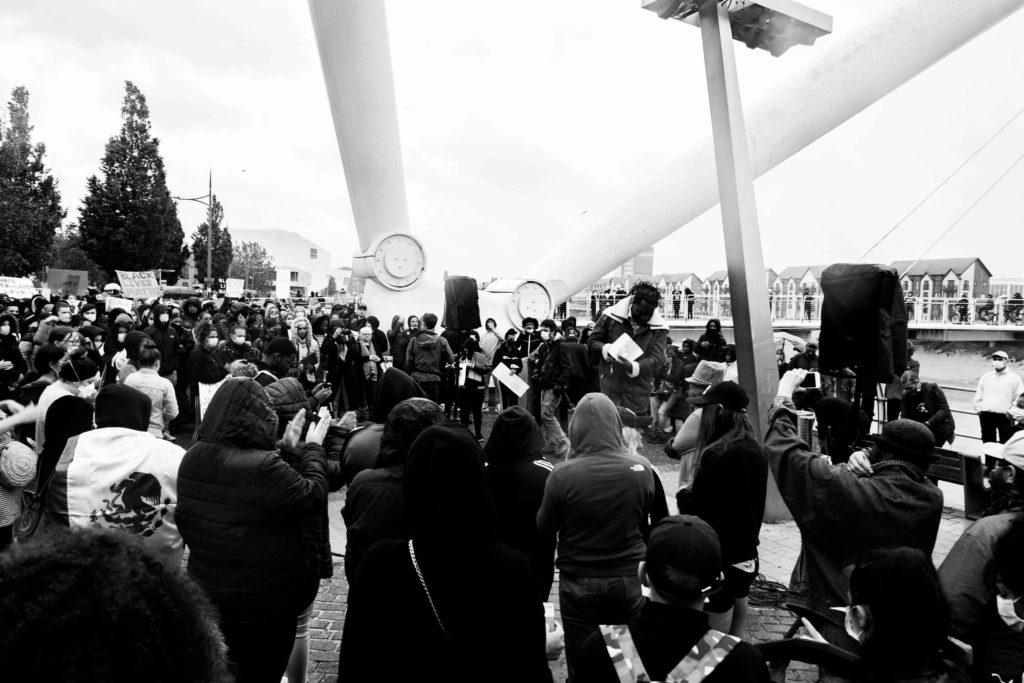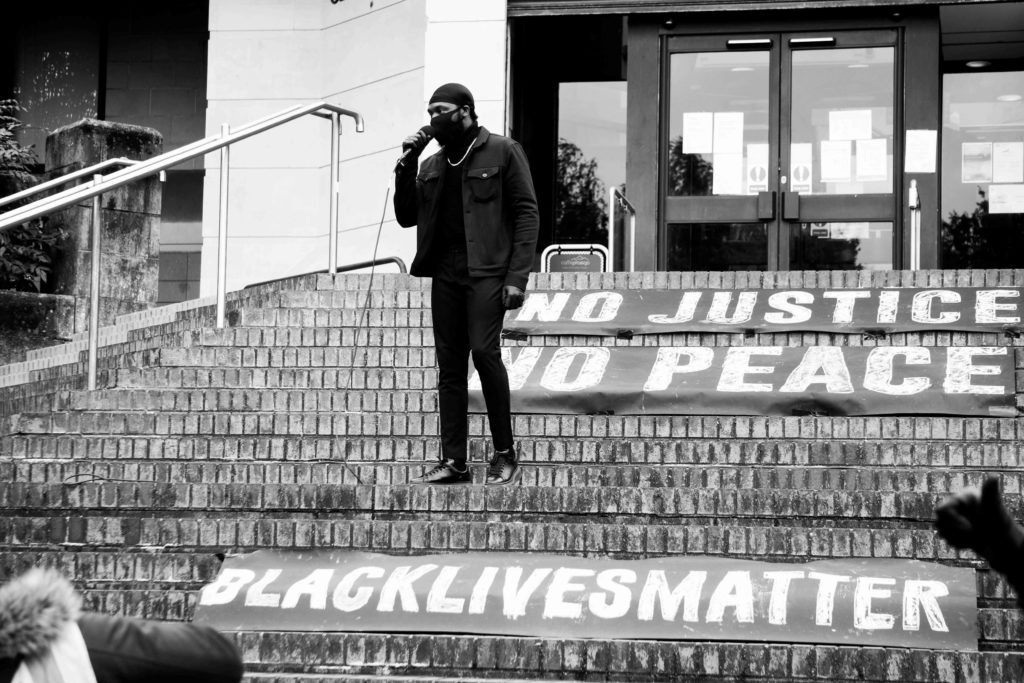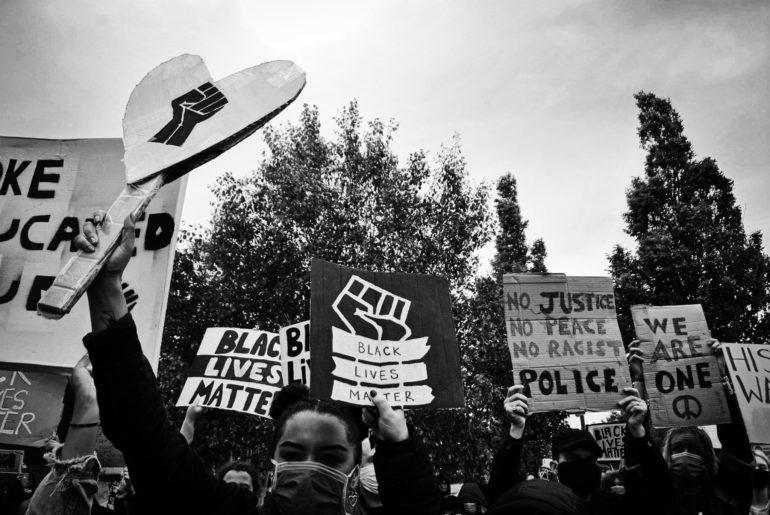How Covid fuelled Black Lives Matter and Summer of protest
Early in the planning of Cardiff’s second Black Lives Matter protest since the killing of George Floyd, co-organiser Bianca Ali, 29, had no idea that she and her team were on to what would soon become one of the city’s biggest demonstrations in many years.
“We organised it through a Facebook group,” she tells The Cardiffian, looking back on the day when around 3,000 people gathered peacefully in Bute Park.
“On the day, all the original members of Black Lives Matter Cardiff were quite nervous. They just didn’t expect such a huge outcome.”
Exactly how Black Lives Matter became a global movement, driving a wave of protests across Wales, is a story that has only just begun to take shape.
“A collective coming together, under a non-specific banner, I was surprised – and pleased,” said James Baker, 70, a researcher into the history of racism, who spoke at protests in Barry earlier this year.
“During Black Lives Matter we had the Windrush scandal. And the reaction of most black people in Wales – long-standing families like mine – to the Windrush scandal was, why are you surprised? They’ve been sending us home for the last two world wars.”
In fact, Black Lives Matter protests have proved highly adaptable, adapting seamlessly to different cultures and communities and bringing together people of different skin colour, age or religion.
“My daughter was very motivated by the protests. Very strong, opinionated young lady. She was quite adamant that she needed to attend this protest, play her part in it,” said Councillor Bablin Molik. “This was the first protest that she actually wanted to join because it was impacting on her and her friends.”

With protests in over 260 towns and cities across the UK, and sympathy marches around the world, the volunteers who helped to organise the rallies – many still in their early twenties – recall their extraordinary summer with wide eyes and a far away stare.
That includes Andrew Ogun, 22, a student and the main co-ordinator of Black Lives Matter in Gwent, who organised the Black Lives Matter march through Newport.
“I was on a social media detox at the time because I was writing my dissertation,” he says.
Then George Floyd was killed. Feeling dissatisfied with social media, Andrew knew that he would have to stage a protest in Newport.
“I think a lot of people were sceptical,” he says. He consulted a friend, who advised that they would be lucky to have 150 people. But having already attended demonstrations in Cardiff and Bristol, Andrew had a hunch that Newport could be part of what was fast becoming a global movement.
“Just from the general traction of the movement worldwide, I had a feeling it would be big,” he says. “But it even exceeded what I thought. Unofficially it’s been reported that there were 2000 people. The atmosphere was incredible. All the speakers. We had poets. There was pain, there was laughter, there was hope. There were a lot of emotions rather than just channelling anger.”
Does he think Covid played a role in any of this?
“The intimate connection between Covid and the death of George Floyd is inescapable. That connection is there. I doubt if the movement would have reached this point without Covid also being involved.”
While lockdown was a period of hibernation for many of us – consumer specialist Kantar estimates shoppers in the UK spent an extra £260m on chocolate in the last six months – the disruption of the pandemic gave some people the opportunity to finally make their voices heard. Liberated by the disruption to normal service, a recalibration was in reach.
For Bianca Ali, the Black Lives Matter protests in Cardiff were a way to hear other people’s experiences of racism and to make a difference, not just for her own health but for her community.
She has four young sisters. “I’ve taught them everything that I know about Black Lives Matter and I’m constantly still teaching them because I’m still learning myself every single day. We are determined to make a difference.”
When it came time to hit the stage in Bute Park, she was pressed into saying a few words of her own. “It was beautiful. It was just a sea of people. You could hear the ripple of the clap just continuing. It was amazing to know that we were part of making that possible, who wanted to say their experiences and talk about what they’d been through.”
By the time it was over, she was so adrenalized she was buzzing for four days. “I’ve never spoken to a crowd of that many people before in my life. So it was very nerve-wracking. But we were all fighting for the same cause. So, I couldn’t say anything wrong really.”

Will these protests, according to British historians the largest anti-racism rallies since the slavery era, become a watershed moment in the struggle against racism and inequality?
Andrew thinks so: he expects the real change to be gradual. “It’s going to have to be very focused and very local. Making incremental changes in our communities and our local areas that therefore will have an impact on the national as a whole.
“We know these problems exist. Unfortunately, where the violence is so overt and visceral in America, I think we had a harder task here in Wales of actually making people understand that racism is a problem here. It’s not just an American problem; it’s not just a European problem. It’s a Welsh problem.
“I think 2021 is going to be the measure of whether these protests actually amount to anything. I’m cautiously optimistic.”



